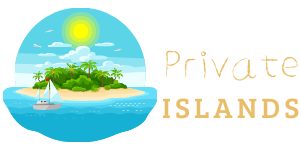Whether it’s palm-fringed or icy, a private island is about as clear a status symbol as they come, conjuring images of travel by seaplane, ultimate privacy and billionaire celebrity buyers. But while it’s true that you can own an island for a relatively modest sum, there are also plenty of other considerations that need to be taken into account, such as accessibility and infrastructure.
Typically, those interested in buying an island are either developers looking for a flagship property to develop into a resort or people who already own waterfront property and want to upgrade by adding an island for added privacy. But there are some who simply dream of living on their own private oasis, either permanently or on a regular basis. These individuals might be seeking a place for tranquility and relaxation, or they might prefer the idea of a party spot where they can enjoy lively celebrations with family and friends.
In the end, it’s a personal choice. “The most important thing is to do your research and understand what you are getting into,” says Robert Greenwood, cofounder and partner of Regency in the Turks and Caicos Islands. “There are so many moving parts — zoning, environmental restrictions, insurance and financing.”
Greenwood says that the island-buying process can be particularly complex for those who are not familiar with the location they are considering. He adds that many islands can be purchased for less than $1 million, but once the buyer wants to implement infrastructure — such as roads, electricity and water — the cost can skyrocket.
Baker, the couple who bought their Caribbean island in 2017, says that while she and her husband are planning to turn it into a vacation paradise for themselves and their children and grandchildren, they’re also considering adding guesthouses or mother-in-law suites so that they can share the experience with others. She and her husband expect to spend about $1 million over the next two years installing a dock, utilities, and buildings. And, in the long run, they’re thinking about running a small business on their island.
Accessibility is another huge consideration, especially if the island is in a hurricane-prone area, like the Bahamas. If a storm comes through, it can make paradise seem anything but, with high insurance costs and maintenance expenses to contend with. In addition, many islands have their own ecosystems that require special care. “In many countries, you’ll need to have an environmental impact study before even thinking about developing your island,” says Krolow.
Ultimately, the Bakers think it will be worth the effort. “You only live once, and if you get an opportunity to do something this special, it’s worth the logistics,” she says. “If you love it, it’s a great way to get away from the hectic world and just enjoy nature.”
